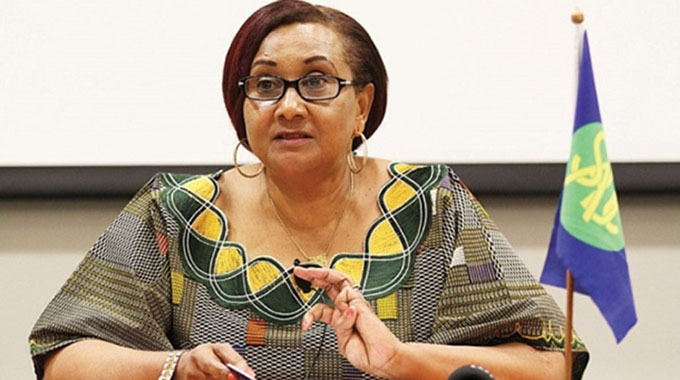Many youths within the Southern African Development Community (SADC) countries, Zimbabwe included, are unemployed and lack experience compared to their grown-up counterparts, the 16-member regional bloc has said.
In her report to the 40th SADC Summit executive secretary, Dr Stergomena Lawrence Tax said as part of implementation of the 2016 SADC Youth Employment Promotion Policy Framework, the SADC Secretariat and the International Labour Organisation (ILO) jointly conducted a study of the youth labour markets in the region.
In a statement this week SADC said the study showed that the bloc has a very youthful labour force by international comparison, and that it will continue to remain so, for the coming decades.
“In addition, the study showed that the average youth unemployment rate (15-24 years) in 2017 was approximately 12 percent, higher than the 7% average for older persons, thus revealing that youth are more likely to be without a job compared to their older counterparts largely due to lack of work experience,” said SADC.
“Despite the relatively low overall unemployment rates for some member states, there is a high prevalence of informality in employment in SADC, which is typically associated with lack of legal and social protection as well as with lower wages when compared with formal employment. Adding to these concerns is the high proportion of youth not in employment, education or training (NEET), in excess of 25 percent across several SADC countries and even higher for females.”
SADC said the NEETs represent a special category of youth whose potential for integration in the labour markets is particularly low, as they are simultaneously not gaining experience or new skills.
“Dr Tax said while member states are implementing a number of youth initiatives, these do not always come at significant scale to absorb the majority of unemployed youths,” said SADC.
“In combination with the youth focused initiatives, member states should therefore strengthen the integration of pro-employment policies in development and sectoral growth policies, with greater emphasis on demand side interventions.”
The bloc noted as a follow up to the SADC youth labour markets analysis, the secretariat was facilitating the development of interventions to promote active and productive participation by youth in social, economic and political development processes in the region. “The secretariat is also working with the ILO towards a youth employment project to increase the proportion of young men and women in decent employment across the SADC region,” added SADC.

